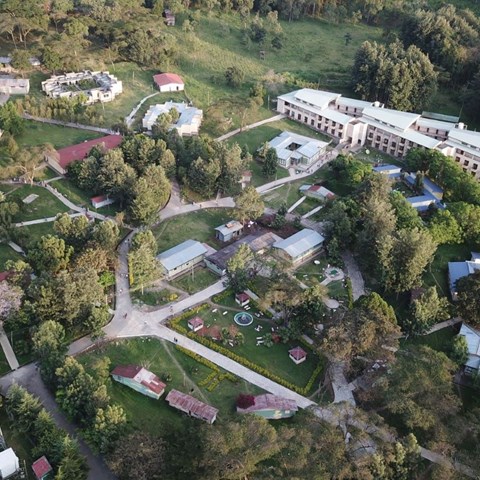One of the Ethiopian development cooperations that SLU has been engaged in a for more than 35 years was building a faculty for forest and natural resources at Wondo Genet. Today Wondo Genet College of Forestry and Natural Resources is a national university faculty and an educational institution that provides the Ethiopian society and government with forest sector staff and specialists.
Mats Sandewall (Department of Forest Resource Management) is one of the SLU-researchers involved in the Wondo Genet programme. He has read the Sweden-Ethiopia evaluation, especially the parts about Wondo Genet, with great interest:
- It is indeed a positive evaluation and I do agree on most findings. Of course, when working within the Wondo Genet programme there were also a numerous worries and imperfections over the years, but it is interesting to see that when it is boiled down to evaluating the broader outcome in terms of relevance, coherence, impact and sustainability the picture is very positive.
Credit to SLU and Sida
In the evaluation shared credit is given to Sida and SLU for the positive outcome of the Wondo Genet Forestry Resources Institute - Sida for its persistence in sustained support and SLU for its high professionalism and flexibility. A summarizing quote from the report says:
“The main lesson learnt from the experience of Sida’s aid to the college is that sustained support over a long period with the leadership of a well-qualified key institution (SLU) can help establish a sustainable centre of excellence and improve the conservation and management of forests and natural resources.”
A strong profile in the Wondo Genet cooperation was the Mersha Gebrehiwot. Gun Lidestav (Department of Forest Resource Management) had the privilege of working with Mersha both in the Wondo Genet collaboration and in different gender equality initiatives and shares her thoughts about the Ethiopian collaboration:
- From my perspective, Mersha really represents what the Swedish aid has achieved. By that, I mean not only that Sweden, Sida and SLU contributed to capacity building in Ethiopia, but also that we Swedes, SLU researchers and teachers learned a lot about both Ethiopia and also more generally about what it is like to live and work under such conditions. Added to that is what one of the Ethiopian informants at Wondo Gennet expresses – the feeling of being a family, namely that the relationship between us is not primarily defined by aid givers and aid recipients, but that we have a joint project.
Both Gun and Mats questions one of the statements in the evaluation report saying:
“We have no information on the gender of students and staff and cannot say whether it has impacted this aspect of gender equality. Nor do we have any additional information for assessing the wider gender impacts.”
- I can only add that I myself, together with Mersha wrote a Gender gap analysis but apparently it did not come to the attention of the evaluators, Gun replies.
The cooperations continues
Another SLU researcher who has long experience from Ethiopia and Wondo Genet is Erik Karltun (Department of Soil and Environment). One of the conclusions from the report that he draws is that a comprehensive and long-term support for a sector is important:
- Even if direct support to Wondo Genet has stopped, the legacy of the support is still generating collaboration between Sweden and Ethiopia in the area of forestry. SLU is now engaged in a project that supports the development of the commercial forest sector in Ethiopia and where Wondo Genet is one of the Ethiopian partners.
Still today, many of the actors that Erik meets, for example from the Ethiopian forest authority, are alumni or researchers from Wondo Genet.
Read more about current development programme: Ethiopia Forest Development at SLU for continuous collaboration
